Blog
In addition to actually doing the organizing, another of Angie’s passions is writing about organizing.
She has been writing a monthly blog on organizing since 2016. Most of the blog posts were also published as monthly newspaper articles in the Kingsport Times-News and Johnson City Press.
To access the blog, you can either:
Click on a category below to see all the blog entries from that category; OR
Scroll the feed of blog entries below
- Apps
- Bathroom
- Business
- Children
- Christmas
- Computer
- Decluttering
- Digital organizing
- Estate planning
- General Organization
- Getting Records Together
- Goals
- Health
- Home Organization
- Kitchen
- Media
- Medical
- Mental clutter
- Minimalism
- Moving
- New Year
- Office
- Organizing Principles
- Paper organizing
- Phone
- Photo Organizing
- Photo organizing
- Preparing for Death
- Purse
- Residential organizing
- Resolutions
- School
- Technology
- Television
- Time Management and Productivity
- Travel
- Working from Home
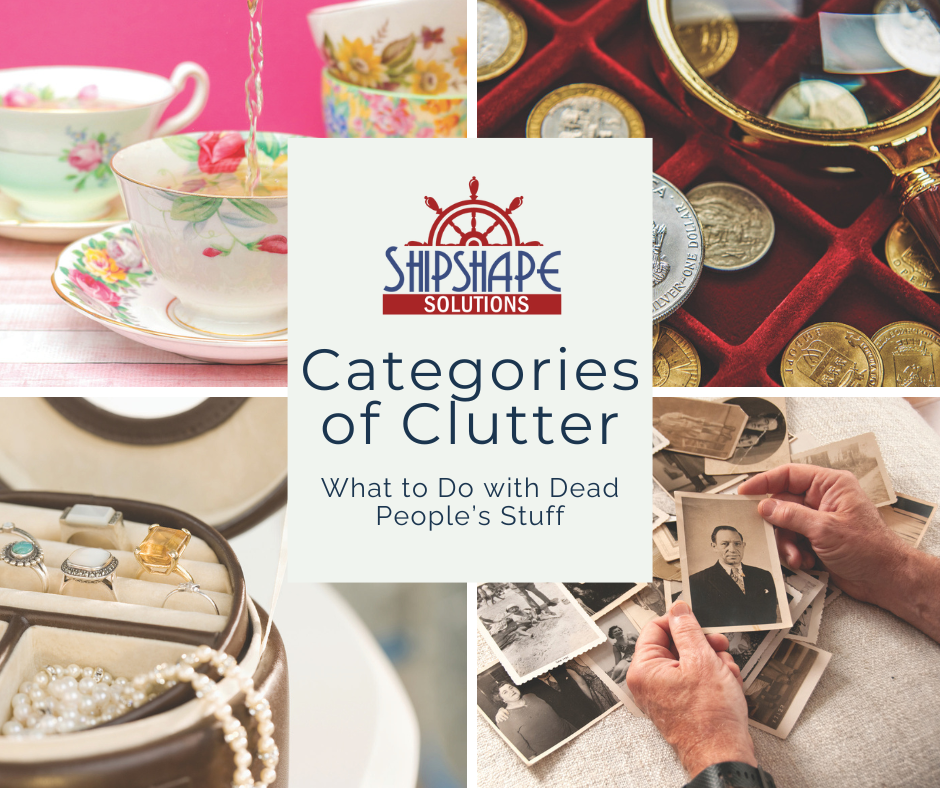
What to Do with Dead People's Stuff
In a world where possessions often define us, what happens to the things that belonged to someone who is no longer here? Are we obligated to keep them, or is there a more meaningful way to honor their memory? The question of what to do with a loved one's belongings can be a complex one, filled with both sentimentality and practicality.
In this final article in my series, Categories of Clutter, I’m focusing on items left behind by a loved one who has died. Deciding what to do with someone’s belongings after they die can be extremely difficult and emotionally charged. Since most of us will find ourselves in this situation at some point, my goal in this article is to equip you with the tools you’ll need.

Categories of Physical Clutter
When we think about clutter, we often think of it in terms of one giant, oppressive mass. Seen in this light, it’s no wonder we often feel overwhelmed by it! But have you ever stopped to think about clutter in terms of different categories? Ever wondered which types are most problematic for you? This first article in a series will begin a discussion of the many categories of physical clutter.

Win the War on Clutter with These Audiobooks
The New Year brings a familiar feeling: the urge to revamp our lives, break old habits, and forge shiny, new ones. Like many, decluttering and organizing may be high on your list of New Year goals.
I salute you for that intention! And I’d like to equip you with a few new tools. I love using my time for learning. I often listen to podcasts or audiobooks as I drive, work on home projects, or exercise. Here are a few of my top audiobook choices on decluttering.
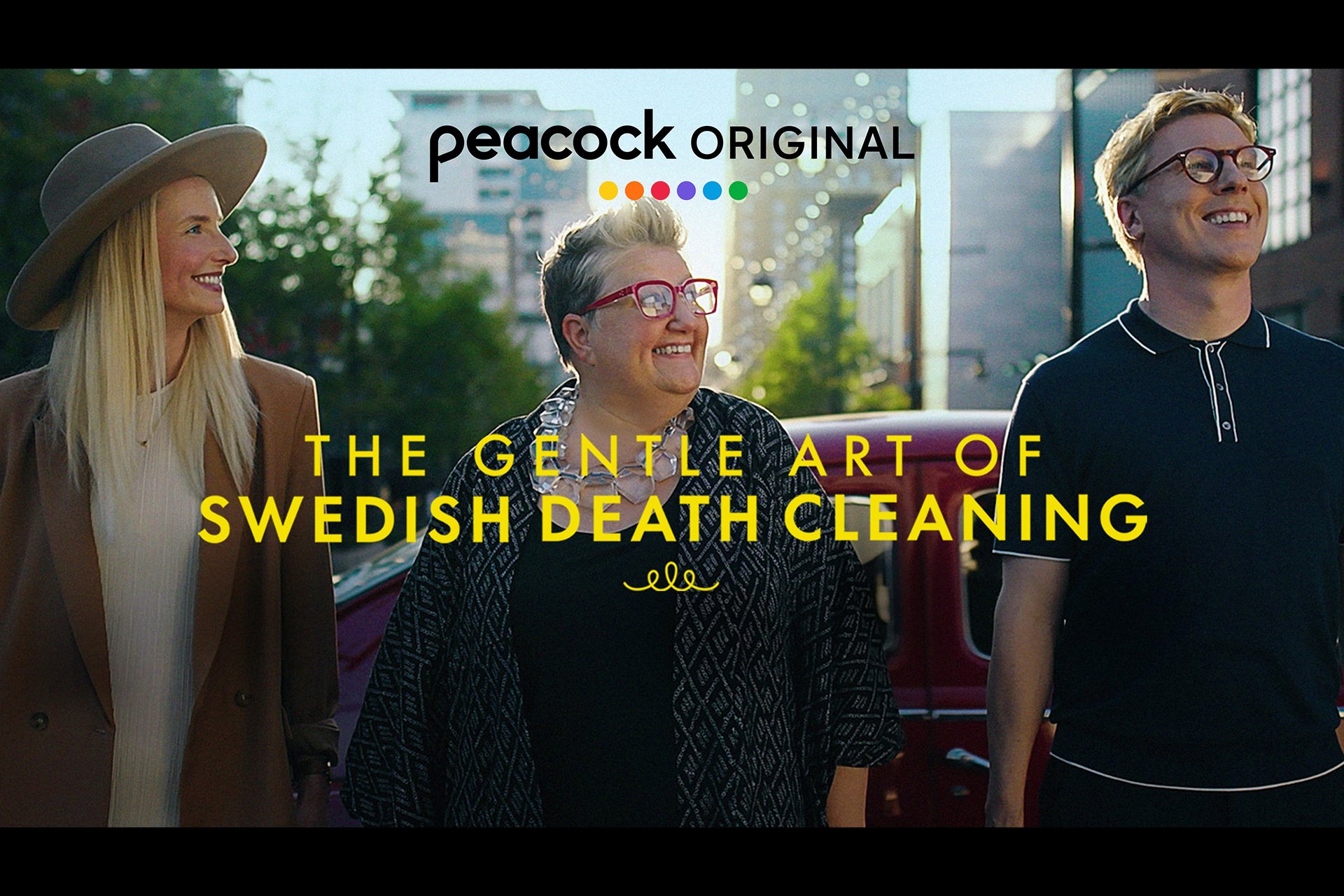
My Reflections on “The Gentle Art of Swedish Death Cleaning” Show
There’s a new organizing show on TV! As a professional organizer, I felt it was my duty to binge watch Peacock’s original show “The Gentle Art of Swedish Death Cleaning.” Here’s my take on this show so you can make an educated decision about whether to watch it.
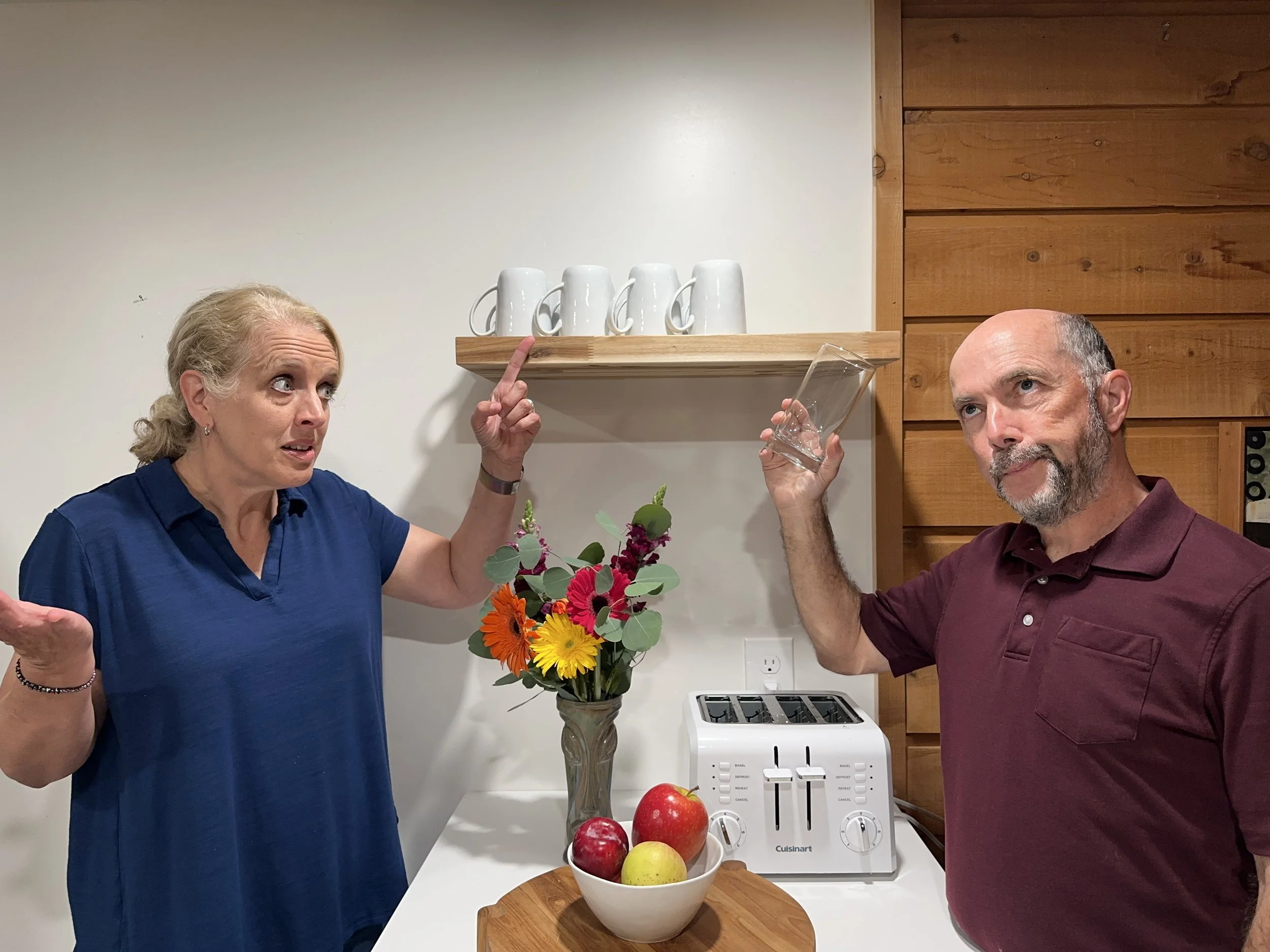
How To Be The Less-Organized Spouse
Have you ever wondered what it’s like to be married to a professional organizer? Or how to successfully cohabitate when your spouse’s level of organization feels like overkill? My husband Eric has graciously offered to reveal all by guest writing this article. You’ll find practical tips for negotiating a level of order that suits both spouses and allows them to flourish without driving each other crazy.

Organizing: Nature or Nurture?
Nature or nurture—it’s a question as old as time. At its most basic, the question centers on whether we are the way we are because of the genetic material handed down from our parents or because of the environments to which we’re exposed.
Many people are gifted with some inherent organizing ability, while others find the task of putting items in order not only distasteful, but also overwhelming.
The answer is complicated. And it’s best answered with a story or two. Read on to find out the real answer to this age old question.

100 Things You Can Declutter Now
I’ve long been a believer in the principle that you can live a more meaningful life with less. Years of working in this industry have only solidified that truth in my mind. Our clutter is detrimental to living a happy, healthy, and productive life. The more we can let go of unnecessary stuff, the more we can focus on what really matters.
Now, in honor of my 100th article and my focus on decluttering, here are 100 things you can declutter now!

A Sentimental Journey: What to Do If It’s Special
Sentimental items are especially difficult to deal with because of the associated memories. Since they can often be an emotional landmine, I recommend using tips like the ones in this article to help you make the best decisions.
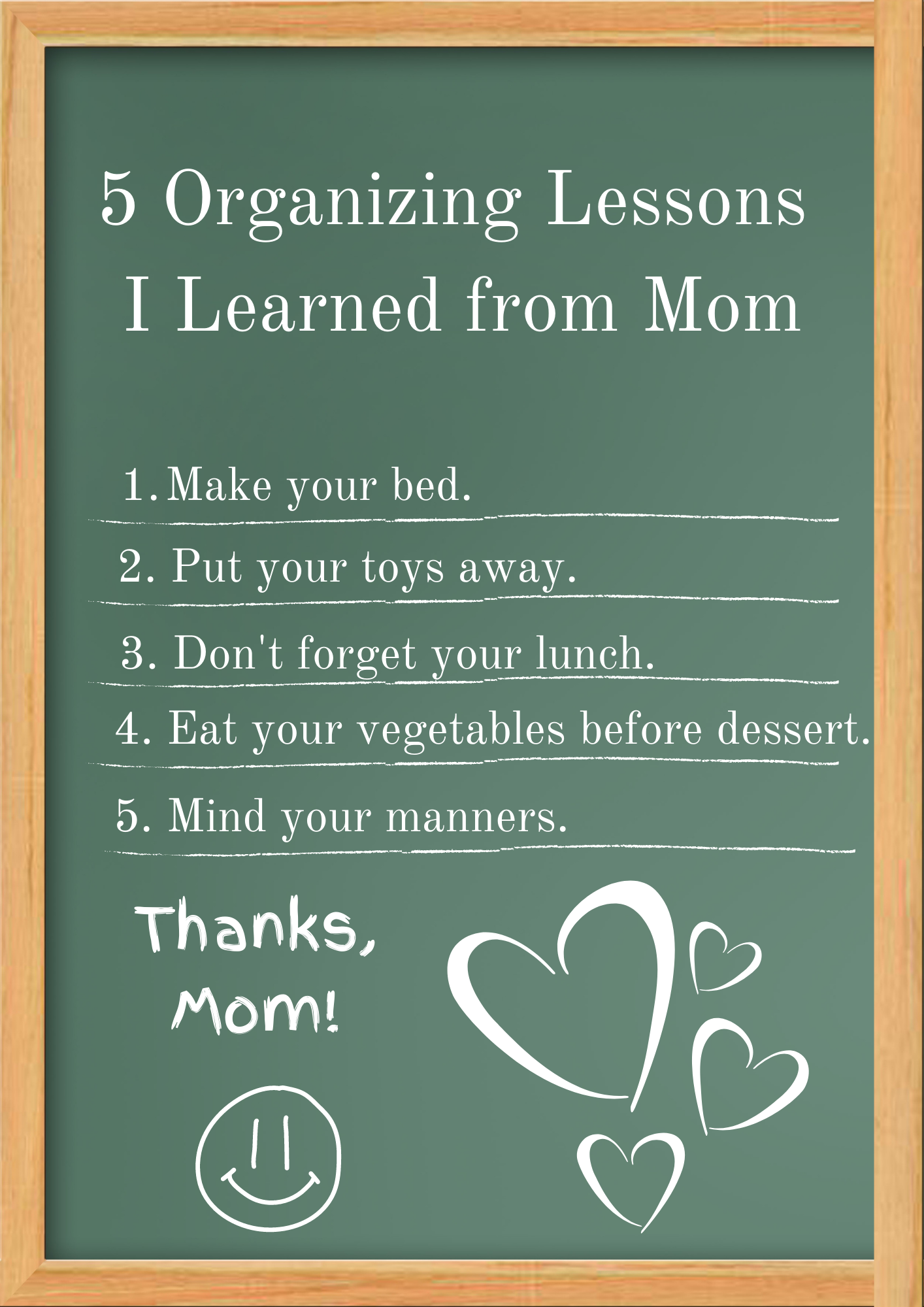
Five Organizing Lessons I Learned from Mom
Our mothers or other parental figures are often responsible for teaching us basic organizing principles that serve us well throughout our lives. In this article that published just before Mother’s Day 2022, I share five of the most important organizing lessons I learned from my Mom.
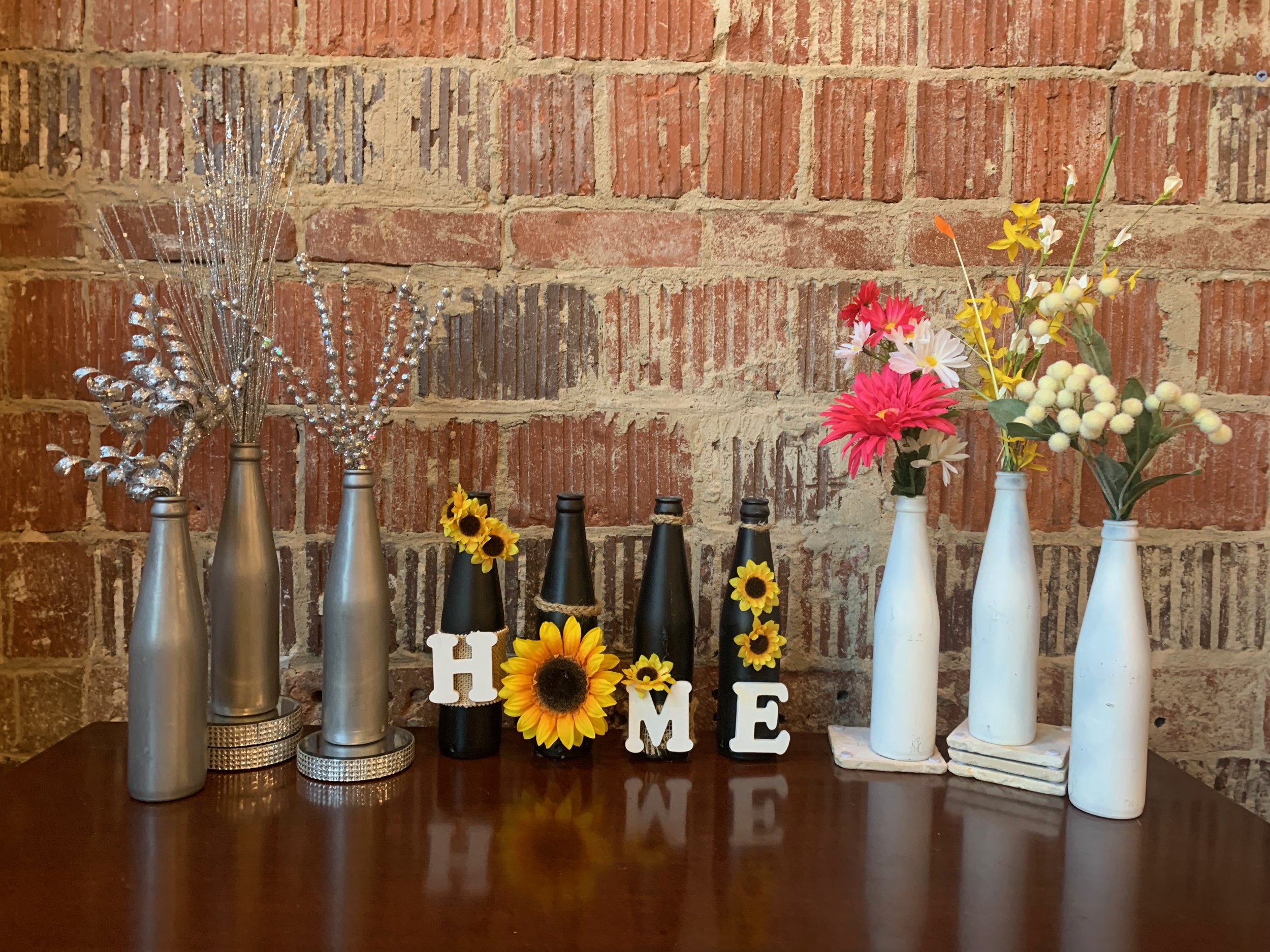
Don’t Let Your Crafts Become Clutter
Those of us who love crafting know that it requires LOTS of supplies. Without careful planning, crafts can be a source of clutter! My latest newspaper article gives practical tips for preventing craft clutter.
One of my best opening lines ever may whet your appetite to read this one—"In a moment of temporary insanity in 2017, I purchased a stack of wooden crates filled with vintage 1986 Tennessee Homecoming Centennial Coke bottles."

Ten Myths about Professional Organizers, Busted! (Part 2)
Whenever I introduce myself as a professional organizer, there are several common responses. The most common response is a blank stare and the reply, “What’s that?” Many of the other common responses are included in this list of myths below, along with a myth-busting explanation for each. This is the second of a two part article. Read on to test your knowledge and to determine whether you might benefit from hiring an organizer.

Ten Myths about Professional Organizers, Busted
Whenever I introduce myself as a professional organizer, there are several common responses. The most common response is a blank stare and the reply, “What’s that?” Many of the other common responses are included in this list of myths below, along with a myth-busting explanation for each. This is a two part article, with five myths included in each. Read on to test your knowledge of professional organizing and to determine whether an organizer might be helpful for you.

Like With Like
Perhaps the most universal of all organizing principles is the practice of grouping like items together. Finding what you’re looking for is so much easier if similar items are kept in the same area. It seems quite logical and basic for many people. But often I have found that although people may understand the principle, they sometimes don’t know how to put it into practice in certain areas of their home.

A Home for Everything
Out of all the principles used in organizing, this one is the most important by far! Not only is it essential to the process of organization, it is also extremely versatile. It can be used to order anything from dishes to shoes to time to ideas. I dare say that without employing this fundamental rule, any attempt to establish or maintain order will fail. What is this vital practice, and how can you use it to organize your home?

If It Stresses You Out, Create a System
While listening to an organizing podcast several years ago, the podcast guest shared a statement that has really resonated with me. This woman was a small business owner and a homeschool mother of 8 children (from my best recollection). To say that this woman had a lot on her plate is an understatement! Yet despite her situation, she was able to thrive in both her business and her home life. This is how she described the secret to her success: “If it stresses you out, create a system.”

"I'm So Overwhelmed!" Five Tips to Go from Paralysis to Progress
“I’m so overwhelmed!” It’s a common refrain in times of stress. When we reach this point, despite the growing mass of work to be done, we can sometimes reach a standstill where we’re getting absolutely nothing accomplished. The intimidating mountain of tasks looms menacingly in the distance, but we are stuck. How do we combat this paralysis and actually make progress?

How Scary is your Basement?
Basements have been frequently utilized as locations for scary scenes in movies. In Silence of the Lambs, the basement is a holding place for kidnapped victims. Who can forget the scene in Signs when an alien hand reaches through the coal chute to grab an unsuspecting child? More recently, in A Quiet Place, the basement used to muffle the sounds of the family’s newborn baby eventually becomes the setting for battles with aliens. We’ve become so accustomed to scary basements that as viewers, when a character opens the door to the basement, we yell, “Don’t go down there!”

What to Bring with you to College (or not!)
The biggest challenge of campus housing is a lack of storage space. Whether you’re in a dorm room or an apartment, your lodging is likely much smaller than you’d like. The smaller the space, the more important it is to use every bit of space you have as efficiently as possible. You’ll need to plan ahead and look for inventive ways to use every square inch of space. Don’t forget to consider using wall space if possible.

Tips for an Organized Move
There are a few particular times in our lives when being organized is especially critical. Preparing for a move is definitely one of those times! Whether you’re moving across town or across the country, moving is one of the most stressful activities of all. Planning well for each stage of the move can significantly decrease the stress level and increase your odds of success on move day. Having just completed two local moves in the past year, I’d like to share the tips that proved most helpful for us.
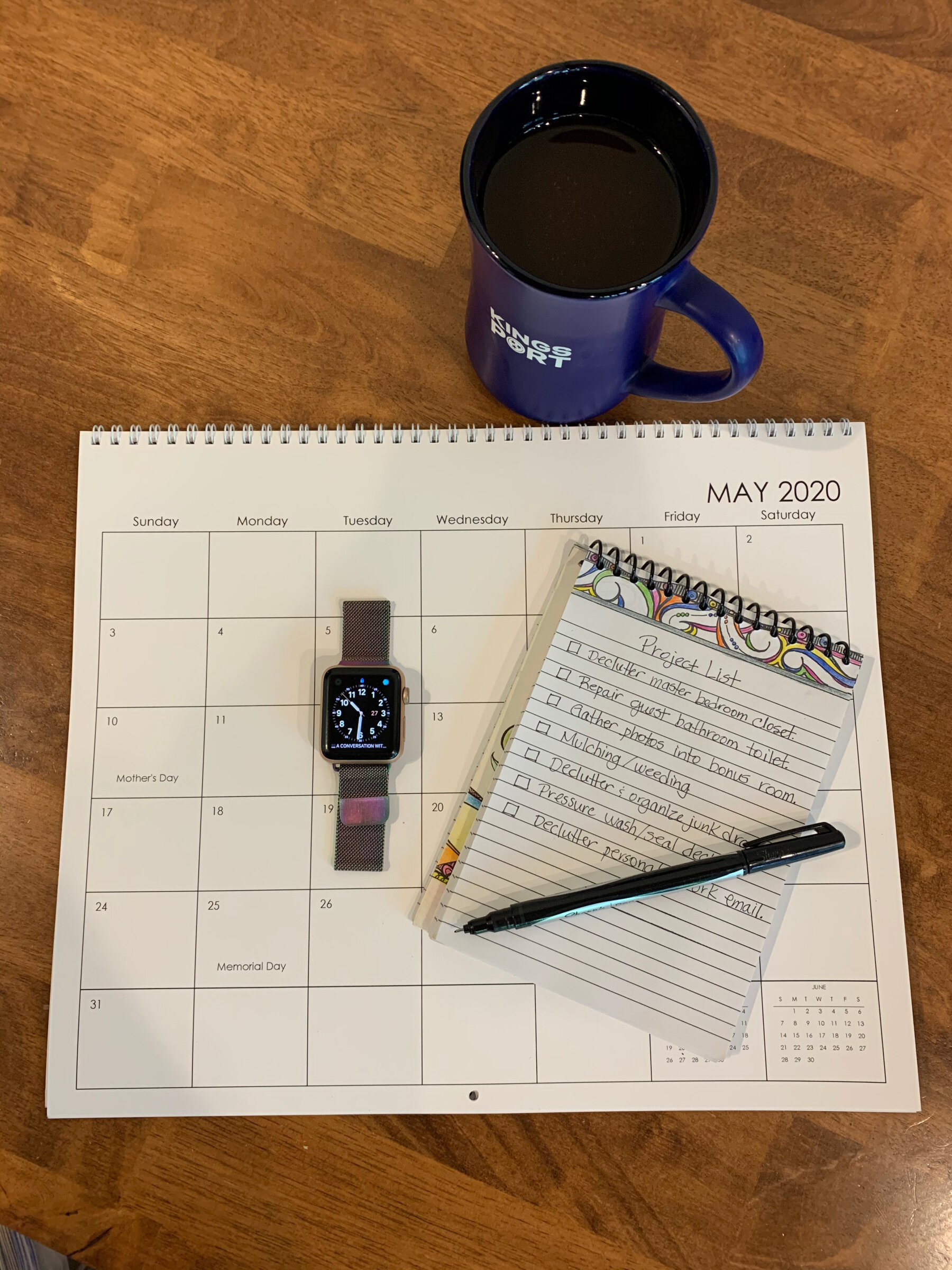
Time at Home, Not Time Wasted
“It was the best of times, it was the worst of times.” So begins what I believe is one of the most well-written chapters in all of literature. In A Tale of Two Cities, Charles Dickens was writing about the stark contrasts during the time period of the French Revolution, a time that brought both despair and joy. I wonder if someday we might look back at this extended time we’ve had at home during the Coronavirus pandemic in a similar way. This time has brought despair to many – uncertainty, furloughed or lost jobs, sickness, and death. But it’s also been a time of joy – more time with family, lighter schedules, time to reflect on our priorities, and good people rising to the call of the needs around them.

